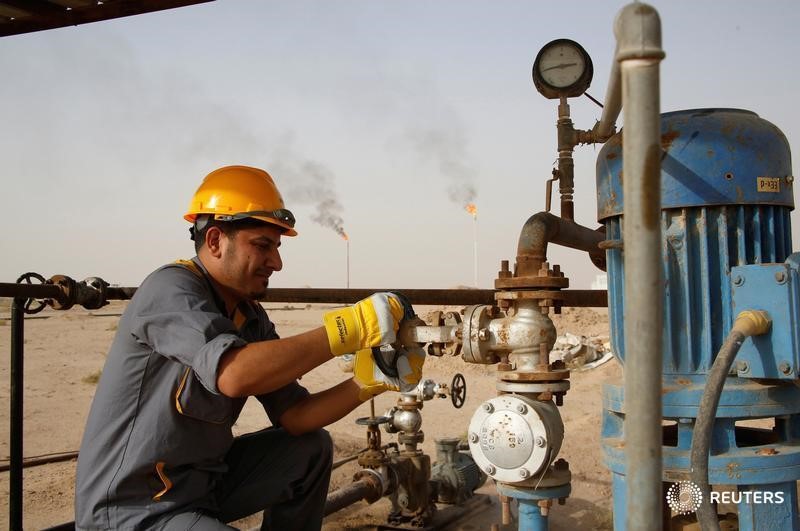
© Reuters.
By Peter Nurse
Investing.com — Oil prices soared Monday as the major European nations considered joining the U.S. in an embargo of Russian oil exports, further tightening global supply.
By 9:50 AM ET (1350 GMT), U.S. crude futures traded 5.4% higher at $108.66 a barrel, while the Brent contract rose 5.8% to $114.23.
U.S. Gasoline RBOB Futures were up 4.3% at $3.3780 a gallon.
European Union countries are meeting Monday ahead of U.S. President Joe Biden’s arrival later this week to take part in a series of summits that aim to harden the West’s response to Moscow over its invasion of Ukraine.
The U.S. and the U.K. have already announced plans to wean themselves off Russian oil, a move that EU governments have so far avoided given their stronger reliance on Russian oil and gas.
However, the sanctions currently in place to punish Moscow for Russia’s invasion of Ukraine haven’t had an immediate impact, and with the conflict intensifying the European Union’s top diplomat, Josep Borrell said that the bloc is ready to discuss including energy in a new round of punishing measures.
Adding to the concerns over the tightness of the global market, attacks by Yemen’s Iran-aligned Houthi group caused a temporary drop in output at a Saudi Aramco (SE:2222) refinery over the weekend.
“The product markets are already tight, particularly for middle distillates. Inventories in most regions are at multi-year lows, so the market will be sensitive to any potential supply disruptions on the product side,” said analysts at ING, in a note.
The latest report from the Organization of the Petroleum Exporting Countries and allies, a group known as OPEC+, released last week, showed some producers are struggling to fill their agreed supply quotas, with the group seen missing its production target by more than 1 million barrels per day in February.
On the demand side, mainland China reported its first Covid-19 deaths in more than a year over the weekend, with the two fatalities matching the total number the country reported for the whole of 2021.
The Jilin region, bordering North Korea and Russia, accounts for more than two-thirds of domestic infections in the latest wave. This area is less strategically important than the southern technology hub of Shenzhen, which was shut down last week, but with China continuing to use stringent measures such as short and targeted shutdowns to combat the virus, further hits to demand seem likely.
The International Energy Agency outlined ways to cut oil use late last week, including car-pooling, lowering speed limits, and reducing the cost of public transport.
“The IEA believes that if advanced economies fully implement the measures, oil demand could fall by 2.7MMbbls/d within a four-month period,” ING added.
Source: Investing.com


























